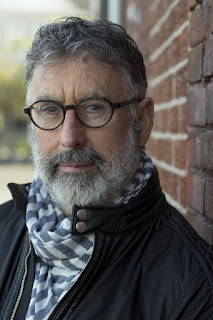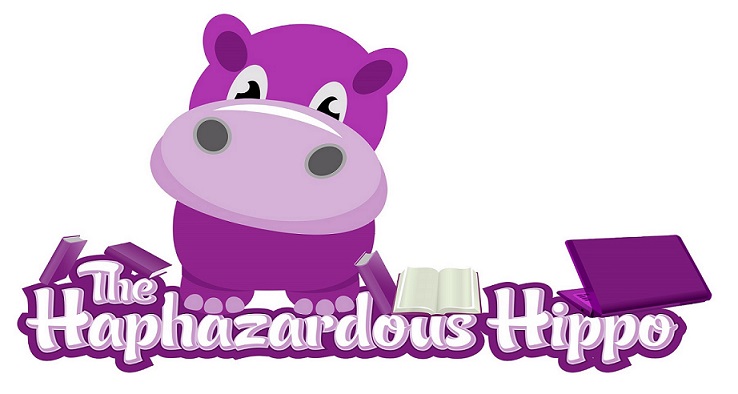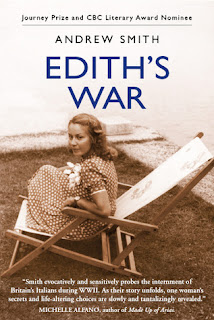Today I'm delighted to welcome Andrew Smith to The Hippo to chat about his journey to being published.
Andrew Smith’s first novel, Edith’s War,
won a gold medal at the Independent Publishers’ Book Awards, U.S.A. His short
fiction has been included in the Journey Prize Anthology and shortlisted for
the CBC Literary Awards. His travel writing has garnered a Western Magazine
Award. He has published two non-fiction books: Strangers in the Garden, the
secret lives of our favorite flowers and Highlights, an illustrated history of
cannabis (co-author). Smith’s next novel, The Speech, has been published in
October, 2016 by Urbane Publications, U.K.
 |
| Photo courtesy of Andrew Smith |
MY PUBLISHING VOYAGE
My publishing voyage started with a journey
of a completely different nature, on
a ramshackle Indian bus rattling its way northward, through the Himalayas from
Kashmir to Ladakh. Before I left for India, a friend of mine, who was editor of
an adventure travel magazine, exhorted me to "make notes, keep a
diary." My copious scribblings, made during that truly awesome bus journey,
became the basis for my first published piece of writing. To my complete
surprise, my magazine article won an award for travel writing. I was hooked.
(You can read the article here: http://andrewsmithwrites.com/wp-content/uploads/2012/11/RealTravelSite.pdf)
Although I took to writing as naturally
as a duck to water, I realized I needed direction to
navigate the literary shoals that lay between me and my goal to publish short fiction.
I enrolled in a creative writing course. I spent the next ten years content to
keep my day job as a book designer,
but writing short fiction in my spare
time. Rejection letters arrived with unwelcome regularity. I'd say
that on average I received ten rejection letters for every acceptance. Thick
skin is a necessity for an aspiring writer. I'm happy
to say that everything I wrote eventually found a home.
It was a mixed blessing when a literary
agent acquaintance blithely said to me one day, "You'll never get anywhere
with short fiction, you need to write a novel." Afterwards I couldn't stop thinking about my short
story about two middle-aged brothers meeting their ageing mother in Venice and
the family dynamics and secrets that emerged during their encounter. I began to
wonder what events in childhood shaped the brothers. I pondered on what their
mother's experiences might have been. With this in mind, I embarked on a tentative
expedition into novel-writing territory. Once
I started, I couldn't stop. Especially when I learnt about the
little-known hardships of Italians interned
in Britain during World War II. It's the ruthless writer talking when I say that,
as well as the obvious sympathy that underdog characters evoke, they also make
for interesting plot devices. The novel-writing expedition ended four years
later in 2008 with a finished manuscript for my first book, 'Edith's War.'
The literary agent who'd
suggested I write a novel wasn't interested. It was my first experience of the
risk-averse nature of literary agents, which was borne out after I approached
several other agents. The few who responded claimed to like the
manuscript but were also of the opinion that I was too much of an
"unknown." Until then I'd naively believed the job of an agent was to
make an author "known" — silly me.
After a year of frustration, I decided
to self-publish. But I wasn't completely self-delusional, I hired an editor. Every manuscript,
no matter how accomplished, benefits from a second pair of eyes. It was relatively easy to plonk an e-book onto several e-book
sales sites, but distributing the printed book proved to be a monumental
hurdle. I eventually found a distributor willing to represent a self publisher.
Which is when the excruciatingly hard work of promotion began. Eventually 'Edith's
War' did quite well. I covered costs and earned a modest amount.
While I'd learnt that agent
representation is rarer than a four-leaf clover, I also knew that self-publishing
is definitely not for the faint-hearted. So what the hell made me write another
full-length fiction? Because by then I was as hooked on novel writing as an
addict is to crack cocaine. Some days the prospect of the difficulty of the
process, or maybe it's the fear of failure, is just too overwhelming. Excuses
are made and another twenty-four hours slip by without a word produced. But sometimes the
sentences fly in a delirium of creativity,
during which endorphins potent as LSD are released.
My inspiration
was the similarity of socio-political events happening at the time with those that occurred when I was an art student in Wolverhampton
in the late 1960s. Immigration was a growing 'concern,' ensuing prejudice and
racism was rearing its ugly head. I remembered the ever-fascinating Wolverhampton M.P. Enoch Powell and his infamous Rivers of Blood speech. I was fairly sure
I could write a novel about him to
include more everyday
characters, but
which would be relevant to present-day events.
Two years later I had a final draft.
I can't remember where I heard about
Curtis Brown Creative, the workshops run by Curtis Brown literary agency. It was hinted that the workshops were a net to 'catch'
promising properties for Curtis Brown agents. But it was also made clear there
was no guarantee of representation. By the end of three months of workshops, my
manuscript had improved considerably, but in the final one-to-one seminar an editorial change was suggested that would involve six months more of intensive work. Although reeling at the
idea, I knew in my heart of hearts, the suggested revision would improve the book
immensely.
Six months later my revised manuscript was
presented to a Curtis Brown agent. It was turned down in the nicest possible
way. The second rejection was as
complimentary, which made it all the more frustrating. A
third agent turned the book down with a similar refrain to the others —
"brilliant but impossible to 'place.'" Which meant, I was told, that it didn't fit into any obvious
genre, nor was there any 'likely' publisher to sell to.
I firmly believe that any success is a
combination of good fortune and talent. I was fairly certain I had the talent, the
good fortune came in the person of Matthew Smith of Urbane Publications. I was referred to him by Nick
Jones, a man I'd interviewed in the course of researching the book. When I
poured out my tale of woe about agents' rejections, Nick suggested I contact Matthew, who'd published Nick's
most recent book. What followed was
swift and wondrous. I e-mailed Matthew with an outline of the novel. He replied
almost immediately asking to see the manuscript. Twenty-four hours later he
e-mailed a proposal to publish with a draft of a contract attached. Some months
later I held a copy of 'The Speech' in my hand, confident I was published by an experienced and
supportive publisher whose principle is one of collaboration. I'd reached an
enviable destination in my publishing voyage.
(Learn more about 'The Speech' here:
https://www.amazon.co.uk/Speech-Novel-Andrew-Smith/dp/1911129511/ref=sr_1_1?s=books&ie=UTF8&qid=1484725284&sr=1-1&keywords=the+speech+andrew+smith)
You can find out more about Andrew and his books and connect with him using the links below:
I'd like to thank Andrew for stopping by today and for taking the time to write such an interesting post.




No comments:
Post a Comment